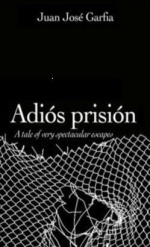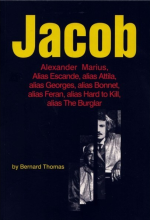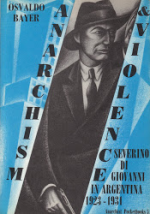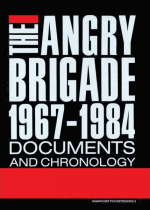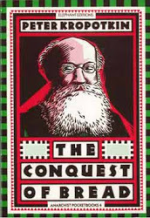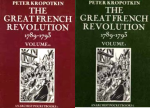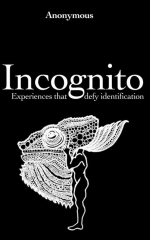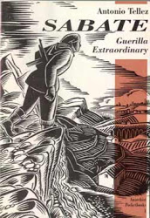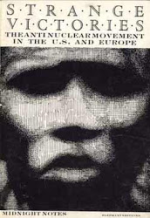Anarchist Pocketbooks
Juan José Garfia
ADIÓS PRISIÓN
The story of the most spectacular escapes
This book talks about freedom, the urgent need for freedom and the impossibility of living without it. This book says that freedom must be taken back at all costs and that is exactly what the protagonists of Adiós Prisión, Spanish prisoners under the infamous FIES regime, did: they took back their freedom using all means necessary, challenging the impossible, ready to kill for it if necessary. There is no room for political correctness or abstract morals concerning human life here: if the screws keep you locked up and your life, even in its most banal and insignificant aspects, is at the mercy of their caprice, violence and stupidity, your only choice is to eliminate them if they put themselves between you and your freedom.
Feb 18, 2017 Read the whole text...
Bernard Thomas
Alexander Marius Jacob
Alias Escande, alias Attila, alias Georges, alias Bonnet, alias Feran, alias Hard to Kill, alias The Burglar
Rigor and precision have finally disappeared from the field of human procrastination. With the recognition that a strictly organisational perspective is not enough to solve the dilemma of ‘what is to be done’, the need for order and security has transferred itself to the field of desire. A last stronghold built in fret and fury, it has established a bridgehead for the final battle. Desire is sacred and inviolable. It is what we hold in our hearts, child of our instincts and mother of our dreams. We can count on it, it will never betray us.
Feb 22, 2017 Read the whole text...
Osvaldo Bayer
Anarchism and Violence
Severino Di Giovanni in Argentina 1923–1931
The book we are presenting here is an interesting attempt by Osvaldo Bayer to reconstruct the activities of the Italian anarchist Severino Di Giovanni in Argentina in the 1920’s. It also bears all the consequences of such a difficult task undertaken with the thorough but limited tools of the journalist.
Jan 30, 2017 Read the whole text...
The Angry Brigade 1967–1984 Documents and chronology
Described as ‘mad’, ‘terrorists’, ‘adventurists’, or at best authors of ‘gestures of a worrying desperation’, the Angry Brigade were condemned without any attempt to analyse their actions or to understand what they signified in the general context of the class struggle in course. The means used to justify this were simple: by defining the actions of the Angry Brigade as ‘terrorist’, and equating this with ‘individualist’, the movement organisations—whose tendency is to see the relationship between individual and mass as something in contrast—neatly excluded them from their concerns.
Feb 23, 2017 Read the whole text...
Peter Kropotkin
The Conquest of Bread
Although The Conquest of Bread is undoubtedly one of the fundamental classics of anarchism, its present day validity is not as certain as it is linked to a precise situation of class struggle which cannot be easily clarified by referring to the analyses contained in the present volume. Put it aside? Consign it to the pleasing research of the historiographers, ever capable of giving a semblance of life to what has long been dead? Make a great task of separating the wheat from the chaff, patiently pointing out the parts that are still valid and those that are decidedly out of date? And, in such a case, what would remain of the unity of the work which, although accidental as it consists of pieces written at different times, cannot fail to leap to the eyes of even the most casual reader?
Feb 16, 2017 Read the whole text...
Peter Kropotkin
The Great French Revolution 1789–1793
Kropotkin’s work on the French Revolution is without doubt one of the fundamental interpretations of events that were to transform the destiny of humanity. Its importance lies in two premises: the design of a revolutionary development that is different and more significant than that usually suggested by bourgeois historians, and the individuation of the first symptoms of the current of thought and action which, a century later, was to take the name of anarchism.
Mar 4, 2017 Read the whole text...
Incognito Experiences that defy identification
This book is about living in hiding. It pierces the darkness and leaps into the secrecy of the incognito, a parallel dimension in which even what could be said often is not. Out of excess of tact, fear or because one thinks it is not relevant. Or, in certain milieux and in the worst cases, due to mere political tactics. But, even at a glance, the world of clandestine people is not a desert land; on the contrary it is populated by living beings, experiences and ideas that are very close to ours, in both the most miserable and the most fascinating aspects of our lives, close to our most ardent desires and passionate daydreams.
Feb 6, 2017 Read the whole text...
Antonio Téllez Solà
Sabaté
Guerrilla Extraordinary
This book tells of the life, the action and the death of an anarchist guerilla. Many things have happened since it was first published at the end of the sixties, and experience of armed struggle in Europe is no longer limited to that of the comrades who carried on the struggle against Francoist Spain. But that does not in the least detract from the theoretical and practical importance of Sabaté’s actions, and the value of this book in particular.
Jan 29, 2017 Read the whole text...
Strange Victories The anti-nuclear movement in the U.S. and Europe
The following piece of work, on the anti-nuclear movement in the US and Europe, although written in 1979, is still a valid contribution to this search for clarity as a basis for struggle. Since the time it was written the anti-nuclear/peace movement has grown and multiplied mainly due to the mining of Europe with nuclear missiles. This growth has been of massive quantity, but the logic and quality remain the same as when the following was written.
Jan 30, 2017 Read the whole text...
Series
Fragments
Work in Progress
Anarchist Pocketbooks
Kaleidoscope
Anarchist Pamphlets
Bratach Dubh
Detritus
Drafts
Déjà vu
Insurrection (PDF)
Contact
e-mail: elephanteditions [at] riseup.net
Distributions
In Europe, Elephant Editions are distributed by Active Distribution
In the United States, Elephant editions are distributed by AK Press
In Italy, Elephant Editions are distributed by Edizioni Anarchismo
Other distributions please get in touch.

